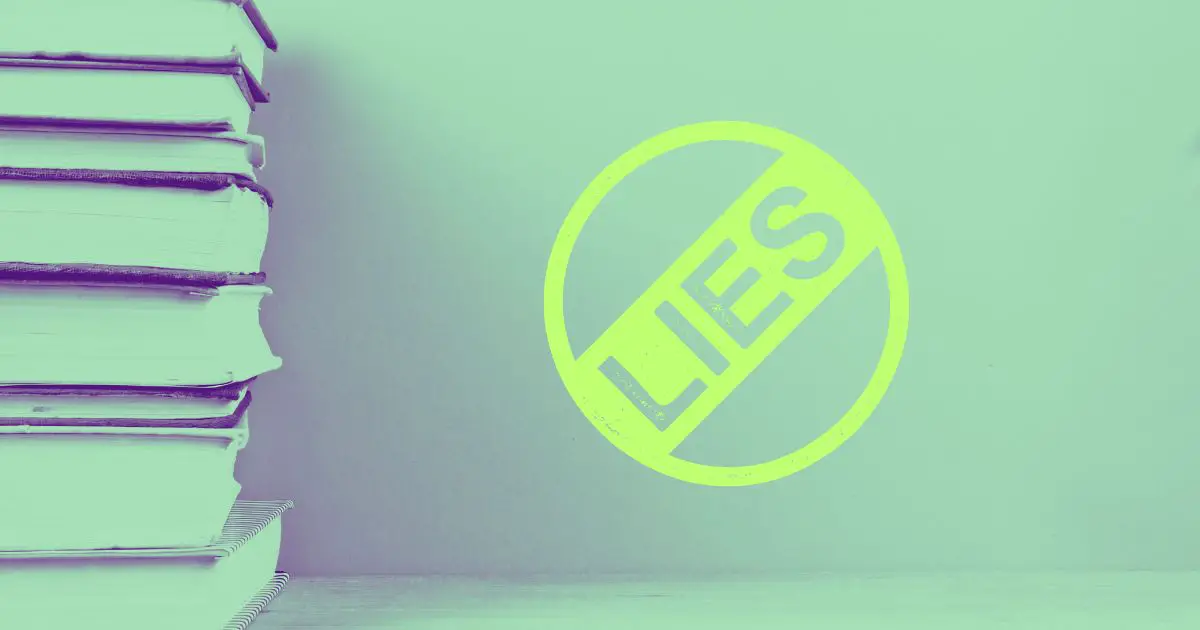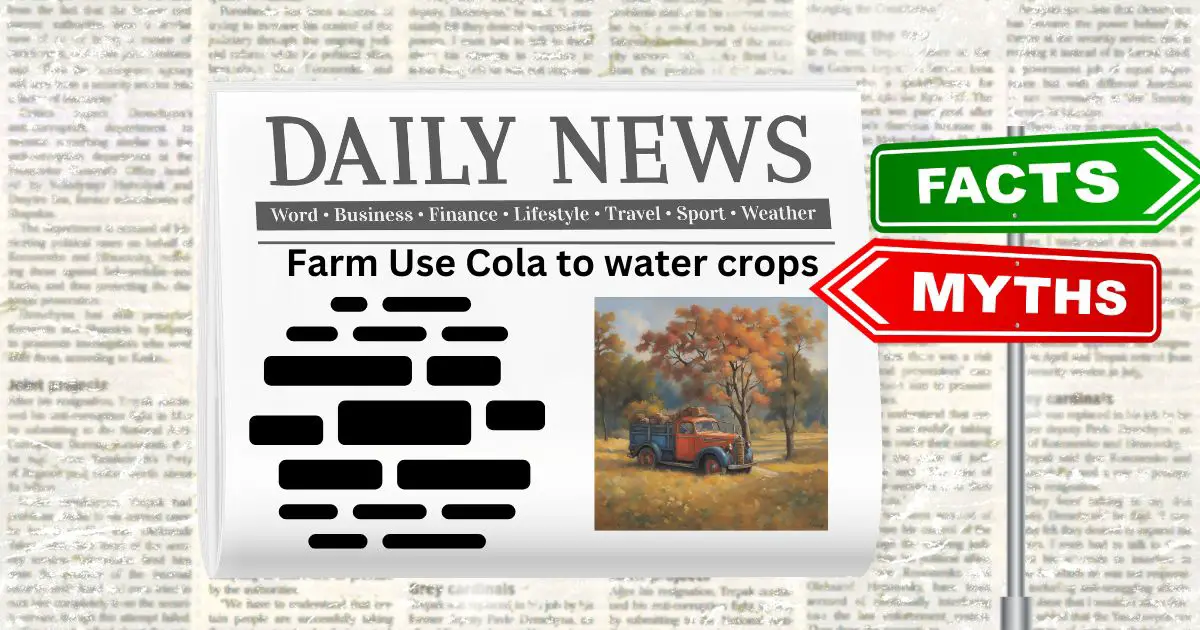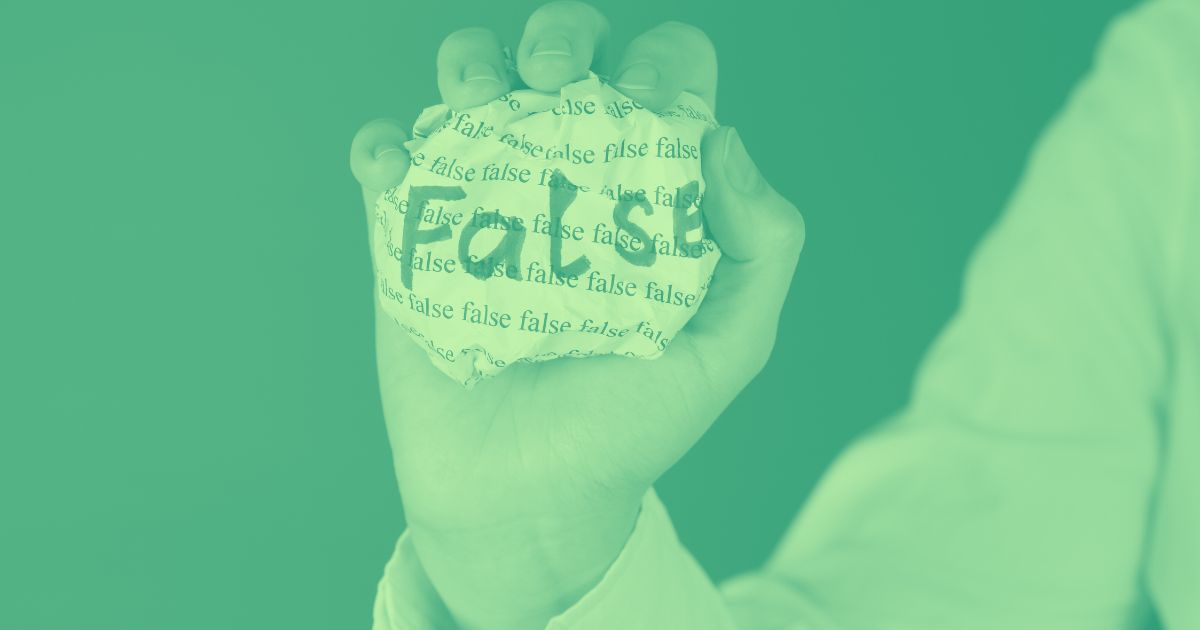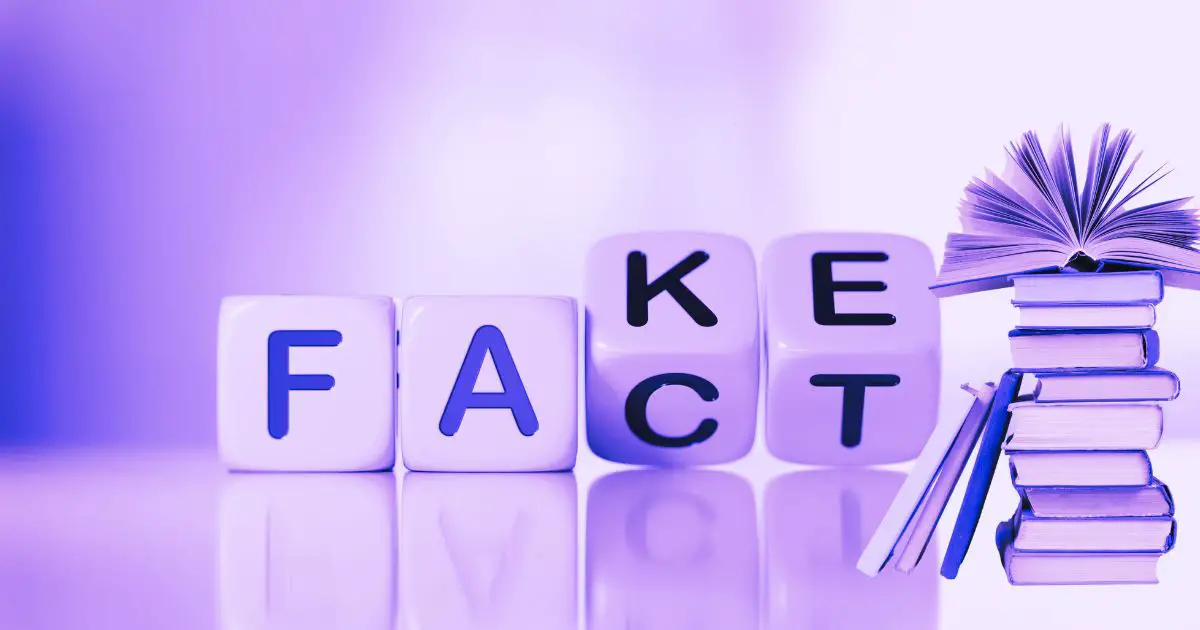Can books legally contain false information? Explore the boundaries of truth in books and the potential risks of reading a book with false information.
Certainly, a book can be printed with incorrect details. Even though the publishing sector has many safeguards, it is not completely protected from mistakes. These errors may come from purposeful deception, insufficient investigation, or just mistakes that were missed during editing. In a world where information acts as a powerful tool, the importance of readers being attentive and critical cannot be overlooked.
1. The Role of Publishers in Ensuring Accuracy

Editorial Standards and Fact-Checking
A house publishing book usually has certain standards for editing, which aim to keep the content reliable and correct. One common element in these standards is a fact-checking process where fact-checkers verify if all information presented by the author is true or not.
Fact-checkers go through claims made by the writer, comparing them with trustworthy sources to find out any mistakes before a book gets printed. Even so, errors may occasionally pass by these efforts, primarily when the process of checking facts is done quickly or if the book talks about very specialized or swiftly changing subjects.
The Impact of Deadlines and Market Pressure
Publishers have to work quickly and face market pressures, so when deadlines are pressing sometimes the editorial process may not be as thorough as needed. If there is a demand for content that needs to be delivered on time, like in the case of books about current topics or those trying to profit from ongoing events, it could lead publishers to cut corners.
This rush might lower the quality control on verifying facts and editing texts which raises the chances of false information being published. So, publishers do aim for precision but the practicalities of publishing can create barriers to achieving this.
Trust in the Author’s Expertise
Publishers usually trust their writers greatly, particularly in non-fiction pieces. The authors are seen as knowledgeable figures in their areas of expertise, and it is expected that they bring credibility through their credentials. Nevertheless, experts can also commit errors or purposely alter facts to suit a specific storyline. The publishing process’s dependence on the author’s expertise can be seen as a strength and a weakness, highlighting the need for strong editorial control.
2. Authors’ Responsibilities and Challenges

Ensuring Accurate Research
Writers have a big duty to make sure what they write is true. They should do careful research and check information from many places to confirm their statements. However, finding exact details can be difficult because of issues like access to reliable data, subject complexity, and chances for prejudice in the research process. Authors must navigate these challenges diligently to ensure their work stands up to scrutiny.
Balancing Creativity and Truth
In the case of non-fiction authors, they may struggle to merge lively story creation with factual precision. The attraction of adding extra details for dramatic reasons occasionally results in the inclusion of untrue things. Even though creative narratives could make a book more fascinating, the problem is that authors might be tempted to swap truth for amusement. This equilibrium is very important for maintaining the quality of their work and gaining trust from those who read.
The Consequences of Misleading Content
Authors who publish false information face significant reputational risks. Inaccuracies can damage an author’s credibility and lead to public backlash, legal disputes, and the loss of future publishing opportunities. Moreover, misleading content can have broader societal implications, particularly if it influences public opinion or decision-making. Authors must consider the potential consequences of their work and strive to uphold the highest standards of accuracy and integrity.
3. The Impact on Readers and Society

Trust and Skepticism
Readers have a strong belief in books that are published, usually thinking the information inside has been checked very carefully. Yet, if there is fake data present this trust can be diminished and increased doubt about the publishing field might occur. Readers might start to question more about the sources they read, wanting to confirm facts by themselves rather than simply accepting them. This tendency towards skepticism might have two sides, encouraging a critical mindset but also possibly reducing trust in real things.
The Spread of Misinformation
Books containing false information can add to the problem of spreading inaccurate knowledge, especially if they become very popular. The spreading of wrong facts can affect the way people think, create beliefs in society, and even influence policy decisions. It is worrying when wrong information gets shared in fields like health, history, and science because mistakes there could lead to severe outcomes. The proliferation of misinformation underscores the need for vigilance and critical thinking among readers.
Educational Implications
In truth, incorrect information that appears in books can bring about serious educational effects. This is especially the case for students and educators who utilize these materials to study or teach. Inaccurate content may mislead students, confuse their comprehension of subjects, and obstruct their academic advancement. Teachers should be careful when choosing teaching resources. They need to use dependable and carefully checked sources so they give correct information to their learners.
4. The Legal and Ethical Dimensions

Legal Accountability
Legally, there could be consequences for spreading fake information, especially when the deceitful details cause harm or damage to people or groups. Defamation lawsuits might occur because of false statements in a book that harm someone’s character. Those who publish and write books need to think about the legal effects of their work. They should take action to lessen the possibility of legal action by making sure what they publish is accurate and fair.
Ethical Considerations
Apart from being legally responsible, there are important moral aspects to ponder when it comes to sharing false information. Those who write and publish must deliver true and exact data as they have a moral duty towards their readers. They also need to pay attention to the ethical responsibility of respecting the human dignity and rights of individuals shown in their work. Maintaining moral principles in the field of publishing assists in building confidence and truthfulness within the industry, adding value to society as a whole.
The Role of Corrections and Retractions
For false details found in books that are already published, there’s an important process to follow: giving corrections and retractions. Correcting can happen with new editions of the book, notes called errata, or official statements from both the author and publisher. In worse situations, retractions might be needed when the wrong information is so serious that it ruins the trustworthiness of the whole book. Fast and honest correction of mistakes maintains trust and responsibility in the publishing field.
5. The Evolution of Publishing in the Digital Age

The Rise of Self-Publishing
The arrival of digital technology has transformed the publishing field, and now authors can publish their work more easily. Although self-publishing gives more freedom for creativity and control, it also brings up issues of accuracy.
Authors who publish themselves may not have access to editorial support and fact-checking tools that are usually provided by traditional publishers. This could make it more likely for false information to be circulated in self-published material. People who read self-published materials need to be more careful in judging the trustworthiness of what they are reading.
Digital Platforms and Instantaneous Updates
The quickness of updates is a positive aspect of digital publishing platforms. It lets authors and publishers fix mistakes immediately, needing no time for printing new editions like with paper books. This feature boosts the capacity to keep information precise and up-to-date, as long as those who create or distribute it are active in rectifying any errors.
The Role of Online Reviews and Communities
Reviews on the internet and reader communities are also effective ways to find and handle incorrect information in books. People who read the book can talk about their experiences, showing places where the story is not correct or precise. This can help authors and publishers fix these errors. Such platforms online create a helpful process of giving feedback, promoting more responsibility and clarity in how books get published. Engaged and informed readers contribute to a culture of accuracy and integrity.
6. Strategies for Readers to Identify False Information

Critical Reading Skills
To find false information in books, it is important to develop skills of critical reading. People must read with a mentality of questioning, considering the credibility of sources and the logic behind their arguments. Comparing information with other good sources can assist in confirming its precision. Readers who polish their critical reading abilities can become more careful information consumers and identify discrepancies.
Awareness of Common Biases
Readers must recognize typical biases that impact the presentation of information in books. Authors might possess personal, political, or ideological bias that shapes their understanding of facts. Understanding these biases assists readers in comprehending possibilities for distortion and approaching content with a critical perspective. Awareness of biases fosters a more nuanced and informed reading experience.
Utilizing Reliable Resources
To check if the information in books is correct, it’s important to use good sources. Academic journals, trusted news places, and expert groups can give reliable facts that confirm or deny what a book says. People reading should focus on sources that are right and fair, using them to check what they come across. This approach enhances the reader’s ability to discern truth from falsehood.
7. Examples of False Information in Books

Historical Inaccuracies
Many false information in books have been noticed, and they can have big effects. For example, if a book has historical mistakes it might keep spreading myths or misinterpret our past. Books that twist historical events either due to mistake or deliberate revisionism could greatly influence how the public sees things and the discussions within academia for many years. These inaccuracies highlight the importance of rigorous research and fact-checking in historical writing.
Scientific Misrepresentations
Books of science are a different field in which untrue details can have big effects. Wrong portrayals of scientific facts or theories might lead the general public astray, impact policy-making decisions, and affect health as well as safety matters.
Some important instances involve books that support false science or cast doubt on firmly established scientific principles. The given instances are a clear indication of why scientific knowledge is important, and they highlight the significance of reviewing scientific papers.
Memoirs and Autobiographies
Moreover, memoirs and autobiographies are not immune to containing incorrect facts. Sometimes, authors unintentionally include false information due to their personal perspectives or faulty memories. Other times, they may purposely exaggeratedly present a story for various reasons such as making it more interesting or boosting their image.
Regardless of intention, these inaccuracies can significantly impact how we view certain individuals and events from history. The genre’s subjective quality makes it prone to contain distortions which stresses the importance of maintaining equilibrium between personal account and factual correctness in works like these.
8. The Future of Publishing and Information Integrity

Advances in Fact-Checking Technology
The abilities of publishers and writers to verify facts are being boosted by technology. Artificial intelligence or AI, along with machine learning strategies can help in finding mistakes and confirming the sources of information which speeds up the editorial procedure. These technical methods show potential for improving precision, but human observation is crucial for grasping context and making judgments.
Collaborative Efforts for Accuracy
The interaction of authors, publishers, and readers is essential to keep the information correct and reliable in the publishing world. Writers might adjust their ideas or works based on feedback from readers while publishers could consider incorporating corrections or new details into what has been published. Readers who are involved can help create a culture of responsibility. They may assist in identifying and managing false information. Collaborative efforts enhance the overall quality and reliability of published works.
Commitment to Continuous Improvement
The dedication to constant betterment is very crucial for maintaining precision and uprightness in publishing. Both authors and publishers should keep on improving, learn from their previous errors, and aim for perfection.
This dedication involves continuous learning, money put into checking facts and resources, as well as being open to advice. Continuous improvement is an approach that the publishing industry can use to maintain its duty of delivering truthful and precise information to readers.
Conclusion
The future will be shaped by a dedication to publishing with integrity. Technological progress, collaboration among different parties, and an ongoing commitment to betterment are the main factors that will help in transforming this industry. It is crucial to maintain the trustworthiness and significance of books as knowledge sources within our changing world through these principles.
To finish, even if there is a chance of books coming out with wrong details, the combination of work from authors, publishers, readers, and teachers can reduce this danger. By creating an environment that promotes precision in information sharing along with critical thought and responsibility for accuracy we help maintain trustworthiness among published material – thus aiding to build up a society more knowledgeable about facts which leads to greater wisdom overall.





